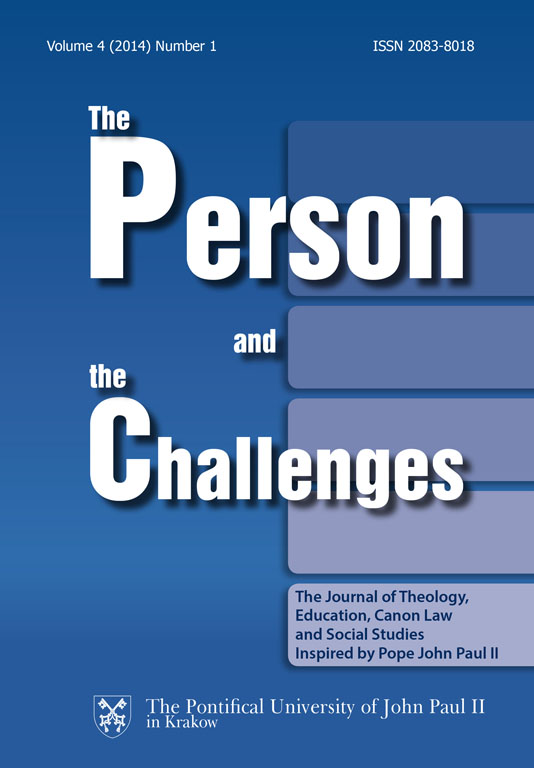Universal Humanism – A Globalization Context is the Classroom of Unheard Options how to Become More Human
DOI:
https://doi.org/10.15633/pch.44Słowa kluczowe:
Universal humanism, globalization, secularization, modernity, politics of recognition, human flourishingAbstrakt
Within the context of multi-cultural and multi-religious society, embedded in the process of globalization, a traditional understanding of humanism offers insufficient frameworks for an adequate comprehension of human flourishing and human search for meaning. In addition, modernity frames and evaluates in many aspects insufficiently the incomparable worth of the human person.
This article offers some guidelines for further philosophical, theological and pedagogical reflection on a humanism that is more suitable for our life in the process of globalization and modernity. Such humanism continually moves us toward a better comprehension of what “human” means within a universe of divergent cultures, religions, traditions, and races. This humanism is called universal humanism, based on the Greek word kaqolou , comprising both universality and wholeness. The first part of this article analyzes some of the main characteristics of humanism in the Greek and Roman contexts, which provide historical and theoretical frameworks for universal humanism. The second part justifies the relevance and usefulness of such humanism: it helps us to transcend singular cultures, nations, political systems, religions, and, by default, to discover or explore anew the meaning of the human person on a global level. The last part of this article suggests some pedagogical attitudes that will help us to embrace and remain in a dialogical relationship with all of humanity, in order to enrich our comprehension of the incomparable worth of the human person, this time from a universal perspective.
Bibliografia
Appiah K.A., Cosmopolitanism, Ethics in a World of Strangers, New York, London 2006, W. W. Norton & Company.
Buck A., Humanismus – Seine Europäische Entwicklung in Dokumenten und Darstellungen, München, Freiburg 1987, Karl Albert Verlag.
Ritter J., Gründer R. (eds.), Humanismus, Historisches Wörterbuch der Philosophie, Basel / Stuttgart 1974, Schwab&Co. Verlag.
Sen A., Democracy and Its Global Roots, Oct. 2003, The New Republic.
Taylor C., A Secular Age. Cambridge, Massachusetts, and London, England 2007, The Belknap Press of Harvard University Press.
Taylor C., Multiculturalism, ed. Amy Gutmann, New Jersey 1994, Princeton University Press.
Turki M., Humanismus und Interkulturalität, Ansätze zu einer Neubetrachtung des Menschen im Zeitalter der Globalisierung, Leipzig 2010, Edition Hamouda.
Weigel G., John Paul II and the Crisis of Humanism, Dec. 1999, First Things.
Pobrania
Opublikowane
Numer
Dział
Licencja
Prawa autorskie (c) 2014 Tone Svetelj

Utwór dostępny jest na licencji Creative Commons Uznanie autorstwa 4.0 Międzynarodowe.
Autorzy publikujący w czasopiśmie udzielają jego wydawcy zgody o następującej treści:
- Autor zachowuje autorskie prawa majątkowe do utworu, a jednocześnie udziela wydawcy czasopisma zgody na jego pierwszą publikację w wersji drukowanej i wersji online na licencji Creative Commons Uznanie autorstwa 4.0 Międzynarodowe oraz zgody na wykonywanie opracowań, w tym przekładów.
- Autor ma możliwość udzielania zgody niewyłącznej na opublikowanie utworu w wersji, która ukazała się w czasopiśmie (np. zamieszczenia go w repozytorium instytucjonalnym lub opublikowania w książce), wraz z informacją o jego pierwszej publikacji w czasopiśmie.
- Autor może umieścić swój utwór online (np. w repozytorium instytucjonalnym lub na swojej stronie internetowej) jeszcze przed zgłoszeniem utworu do czasopisma.

